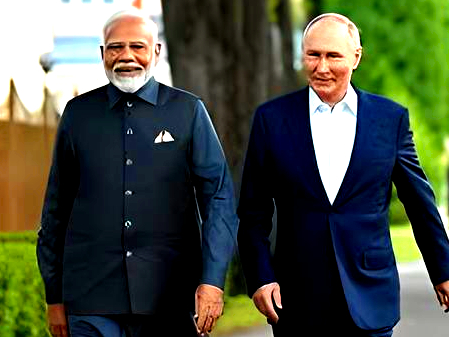Modi and Putin are currently defining the structure of the Moscow-Delhi axis, one of the most crucial pillars of a multipolar world order. Bharat (also known as India) is a state-civilization. Russia-Eurasia is another state-civilization. Clarifying their relations in terms of geopolitics, economics, and culture is fundamental.
We are all now learning to think in multipolar terms, which is a nonlinear system.
Empirically, I have developed a hypothesis: for the stability of a multipolar system, each pole should have no more than one main opponent. If our main opponent is the West, all other poles should be allies. This principle should guide all others in forming their alliances. Only those who aim to be global hegemons and seek to establish a unipolar dominance can afford to have more than one opponent. However, this will ultimately lead to their downfall.
From a pragmatic standpoint, it is crucial for the hegemon to ensure that other poles have more than one opponent, preferably excluding the West. This strategy makes it easier to control such poles.
India has issues with China and, to a lesser extent, with the Islamic world (mainly through Pakistan, but not exclusively). This drives India closer to the West, with which it also has historical grievances (such as colonialism). Therefore, India needs to understand the logic of multipolarity more clearly, and Russia, with which India has no conflicts, can greatly assist in this.
Russia is currently on the front line of the conflict with the hegemon, making the construction of multipolarity and the promotion of its philosophy our natural mission.




